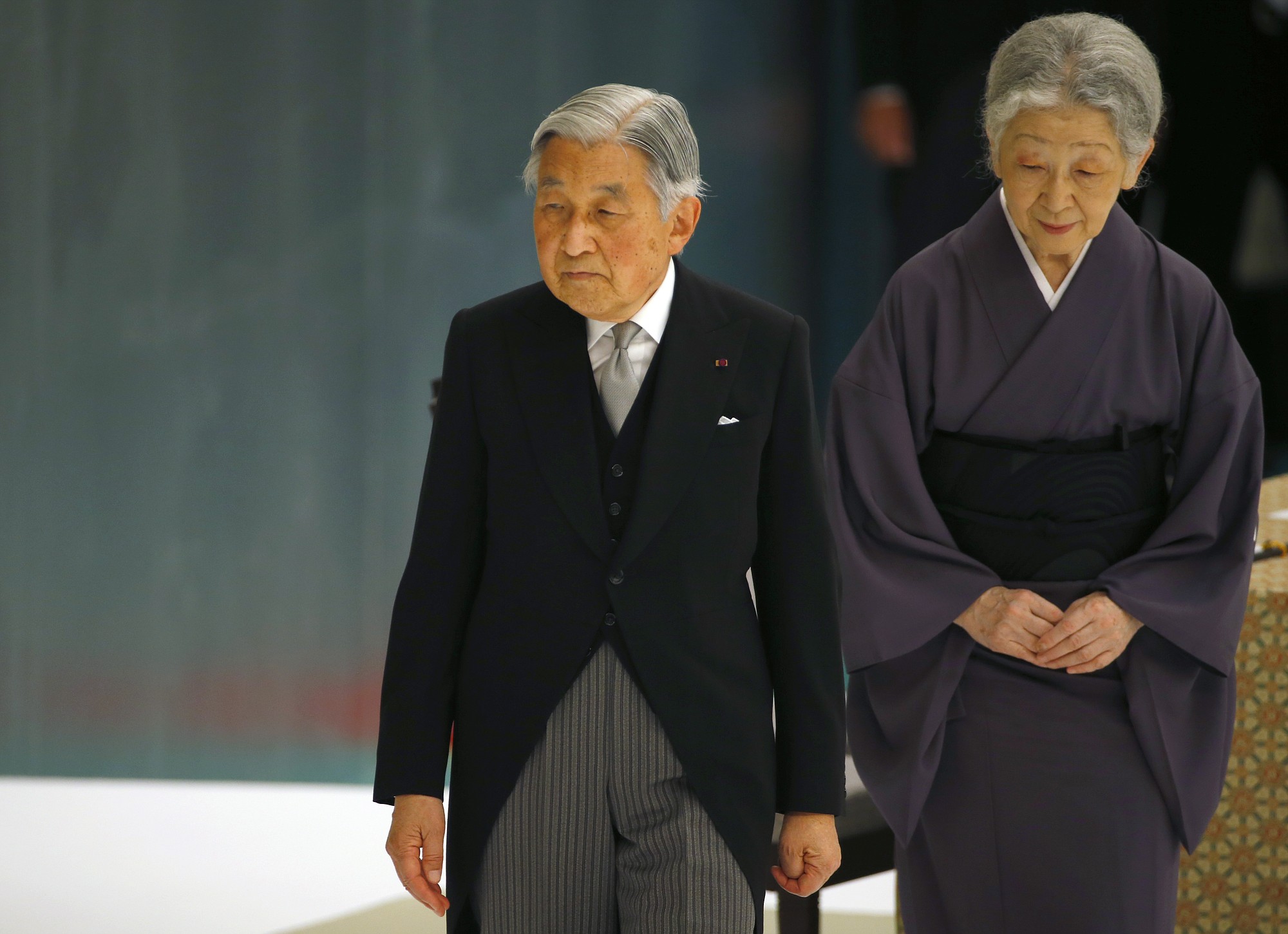TOKYO — Japan’s emperor expressed his “deep remorse” on Saturday over his country’s actions during World War II, strengthening his usual statement of regret on the anniversary of the end of a particularly ignominious period in Japanese history.
At noon — 70 years to the minute since his father, Hirohito, surrendered to the allies — Emperor Akihito and Empress Michiko, along with Japanese Prime Minister Shinzo Abe, attended a ceremony in Tokyo to remember the war dead.
“Reflecting on our past and bearing in mind the feelings of deep remorse over the last war, I earnestly hope that the ravages of war will never be repeated,” the emperor said.
Every year the emperor has read the same statement on the anniversary, but this year he deviated from the usual wording. The 81-year-old figurehead has previously used a Japanese word that means “deep sorrow,” but this year he used a much stronger word: remorse.
“He’s saying we should learn from history,” said Yasushi Kuno, a veteran journalist who has covered the Imperial family for decades and called Akihito’s comments “unprecedented.”
“That’s the maximum he can say as an emperor to express his feelings. But it means a lot that he’s said this during this milestone year,” Kuno said.
The emperor’s short remarks were noticeably more contrite than Abe’s long statement the day before, in which the prime minister expressed “feelings of profound grief” for Japan’s wartime actions but also tried to put Japan’s history behind it.
When the United States occupied Japan after the war, Hirohito was allowed to remain as emperor, but the American-drafted pacifist constitution turned him into a figurehead who hovered above the political fray, constraining the statements he was able to make.
Akihito, who took over the Chrysanthemum Throne when Hirohito died in 1989, has been careful to stay within those limits, even while using subtle language to suggest that Japan should stick to its war-renouncing ways.
In previous addresses, Akihito has appeared to voice his displeasure with Abe’s efforts to reinterpret Japan’s constitution and put the country on what he calls a more “normal” military footing by allowing Japanese troops to fight abroad in certain circumstances.
The proposed changes, likely to be ratified next year by the upper house of Japan’s parliament, have sparked vehement protests here, and the emperor’s remarks have been seized upon by Abe’s opponents.
Akihito reiterated his views at Saturday’s ceremony in Tokyo.
“Seventy years have passed since the end of the war, and our country today enjoys peace and prosperity, thanks to the ceaseless efforts made by the people of Japan toward recovery from the devastation of the war and toward development, always backed by their earnest desire for the continuation of peace,” he said.
Kuno, the analyst, said that the emperor was trying to remind the Japanese that their present-day country was built on peace and sacrifice.
“Survivors are dying, and the lawmakers who are discussing the bills now, including the prime minister, are all born after the war,” Kuno said.
Takeshi Hara, a political scientist at Meiji Gakuin University who has written several books on the imperial system, said that even more surprising than the use of the word “remorse” was the way the emperor explained how Japan established peace.
“He said clearly it was thanks to people’s conscious efforts. This is an expression not heard before,” Hara said. “I think it’s criticism of the more aggressive form of pacifism” that Abe is promoting.
Hara said the emperor appeared to be disagreeing with the logic of Abe and his advisers – that the deterrent effect of Japan’s alliance with the United States had kept it safe, and that the constitutional changes were needed to keep the alliance strong.
“The emperor is saying that’s not so, that the Japanese people themselves have consistently aspired for peace and that has reinforced the peace we have now,” Hara said. “I think this is a poignant criticism against the current administration.”



